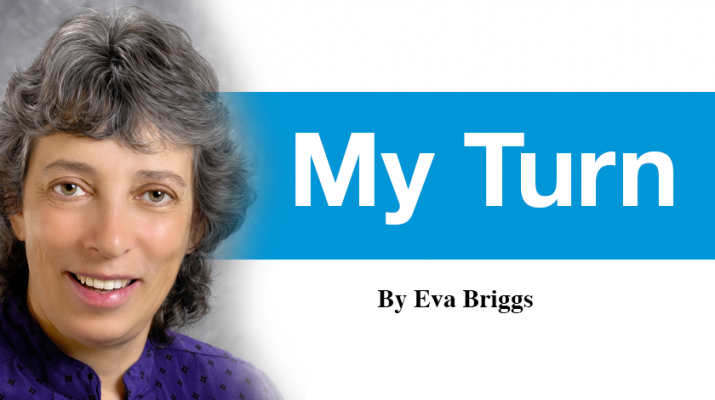By Eva Briggs, MD
 As I write this article, COVID-19 numbers at the urgent care are steadily climbing.
As I write this article, COVID-19 numbers at the urgent care are steadily climbing.
I don’t have a crystal ball to see the future, but I suspect that this latest wave may really take off once kids return to school.
In fact, I had COVID two weeks ago — my first bout — and technically it was a mild case.
My oxygen level never dipped low, I didn’t get pneumonia and didn’t get so sick that I needed to be in the hospital. But I can tell you that a high fever, shaking chills, cough, fatigue and muscle aches do not feel mild when you are the patient.
So, this is a good time to review some COVID facts.
First, don’t rely on a loss of taste and smell as required symptoms of COVID. These symptoms are much less common than with earlier variants. COVID is most likely to present as a respiratory illness similar to a cold and can vary from mild sniffles or sore throat to severe with cough, shortness of breath and fever.
Because every variant is a little different, don’t assume that a cold that feels different than a previous bout of COVID can’t be COVID. COVID can also act like a stomach bug with vomiting and diarrhea or the only symptom might be a bad headache.
If you think that you have a cold or the flu, it’s worth testing for COVID. There are antivirus pills that help if you qualify: age 50 or older, overweight or obese, chronic underlying medical conditions such as diabetes, heart disease, and lung disease. These pills reduce the chance that mild or moderate disease becomes severe disease or leads to hospitalization. But the medicine should be started as soon as possible after a positive COVID test, and within five days of illness onset. Even if you don’t want or qualify for these medicines, knowing whether you have COVID can help you take measures to reduce the spread,
Rapid COVID tests are not perfect. They may not detect COVID during the first few days. If you have a negative test but continue to feel sick, repeat the rapid COVID test. Or obtain a COVID PCR test which is sent to the lab. It’s more sensitive although it does take a day or two to receive results.
One of the best ways to prevent severe COVID remains vaccination. Yes, it’s possible that you will get COVID even if you’ve been vaccinated. But the vaccination reduces the chance that you will wind up hospitalized or dead.
Also helpful to prevent spreading or acquiring the disease are face masks. If you only cover your mouth, they are doing very nothing. Make sure the mask covers your nose and mouth. The most protective masks are N95 or KN95 masks. Next best are surgical masks. But you need a fresh mask each day. Cloth masks may look fancy but are not beneficial. You can use a cloth mask over another type of mask if you like the look.
Even if you don’t recall or aren’t aware of being exposed to COVID, you may still have contracted the disease.
You may have encountered someone who was an asymptomatic spreader, or someone who did feel sick but never told you. Unless you are truly a hermit who has no contact ever with any other human being, you’re at risk.
This information may be basic, but it’s worth reminding everyone so that we can all try to stay healthier this winter.
 Eva Briggs is a retired medical doctor who practiced in Central New York for several decades. She lives in Marcellus.
Eva Briggs is a retired medical doctor who practiced in Central New York for several decades. She lives in Marcellus.

